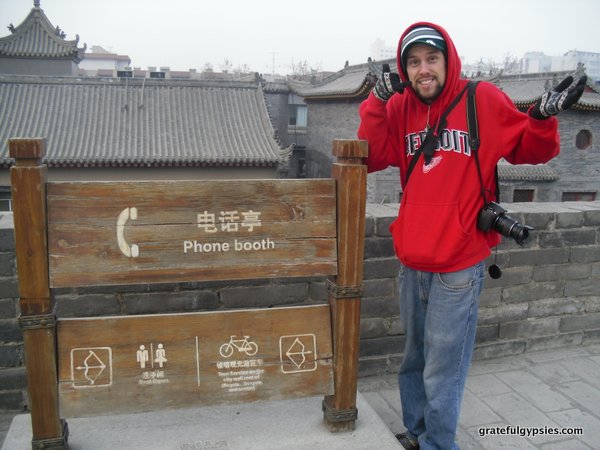Describing People in Chinese (Personality) Posted by sasha on Feb 9, 2017 in Vocabulary
We’ve already learned how to describe someone’s appearance in Chinese, but as we all know, looks aren’t everything. It’s what’s inside that really counts. In this lesson we’ll learn how to describe someone’s personality.
Personality Vocabulary
To get started, let’s learn 25 Chinese words to describe someone’s personality:
-
friendly (友好 – yǒu hǎo)
-
shy (害羞 – hài xiū)
-
agile (利索 – lì suǒ)
-
funny (风趣 – fēng qù)
-
humorous (幽默 – yōu mò)
-
patient (耐心 – nài xīn)
-
stubborn (固执 – gù zhí)
-
loyal (忠诚 – zhōng chéng)
-
honest/frank (耿直 – gěng zhí)
-
easy-going (随和 – suí he)
-
reserved (含蓄 – hán xù)
-
serious (严肃 – yán sù)
-
hospitable (好客 – hào kè)
-
ignorant (无知 – wú zhī)
-
realistic (现实 – xiàn shí)
-
graceful/elegant (优雅 – yōu yā)
-
naive/childish (幼稚 – yòu zhì)
-
considerate (体贴 – tǐ tiē)
-
practical (踏实 – tà shí)
-
clumsy (笨拙 – bèn zhuō)
-
forgetful (健忘 – jiàn wàng)
-
cheap/stingy (抠门 – kōu mén)
-
strong/healthy (健壮 – jiàn zhuàng)
-
frivolous (轻浮 – qīng fú)
-
pragmatic (务实 – wù shí)
What kind of person is he/she?
When asking about someone and their personality type, this is the question you’ll want to use:
What kind of person is he/she?
他/她是什么样的人?
tā/tā shì shén me yàng de rén?
Using the words we learned above, you’ve got a few different ways to answer the question:
He/she is a… person.
他/她是一个… 的人.
tā/tā shì yī gè… de rén
He/she is very…
他/她很…
tā/tā hěn…
Just add the adjective to describe personality in either of those sentences and you’re good to go!
-
He’s a humorous person.
(他是一个幽默的人 – tā shì yī gè yōu mò de rén) -
She’s an easy-going person.
(她是一个随和的人- tā shì yī gè suí he de rén) -
He’s very shy. (他很害羞 – tā hěn hài xiū)
-
She’s very elegant. (她很优雅 – tā hěn yōu yā)
What if you want to use two personality traits in one sentence? Here’s how you do it:
He/She’s… and…
他/她又… 又…
tā/tā yòu… yòu…
Go ahead and be more descriptive! Plus it gives you a chance to practice your grammar some more, which is always fun.
-
She is hospitable and thoughtful.
(她又好客又体贴 – tā yǒu hào kè yòu tǐ tiē) -
He is practical and stubborn.
(他又踏实又固执 – tā yòu tà shí yòu gù zhí)
Bonus Vocabulary – Opposite Words
Why not learn some more words while you’re at it? I’ve gone ahead and paired up some opposite words to describe personality. Learning opposite words is a great way to double your vocabulary, as it’s easier to remember a word when you have another one to associate it with.
-
lazy (懒 – lǎn)
-
hard-working (勤劳 – qín láo)
-
optimistic (乐观 – lè guān)
-
pessimistic (悲观 – bēi guān)
-
introverted (内向 – nèi xiàng)
-
extroverted (外向 – wài xiàng)
-
warm/enthusiastic (热情 – rè qíng)
-
cold/indifferent (冷淡 – lěng dàn)
-
narrow-minded (狭隘 – xiá’ài)
-
open-minded (开放 – kāi fàng)
-
clever/intelligent (聪明 – cōng míng)
-
stupid (愚笨 – yú bèn)
-
generous (慷慨 – kāng kǎi)
-
greedy (贪婪 – tān lán)
-
bold/daring (大胆 – dà dǎn)
-
timid/cowardly (胆小 – dǎn xiǎo)
Now you should be able to describe someone’s appearance and personality in Chinese. Go ahead and practice – describe your family members, friends, colleagues, or even just some random person.

Build vocabulary, practice pronunciation, and more with Transparent Language Online. Available anytime, anywhere, on any device.






Comments:
Damon:
Fantastic article. So much useful vocabulary, a lot of which I’d never heard before after 3 years living in China. Thanks so much.